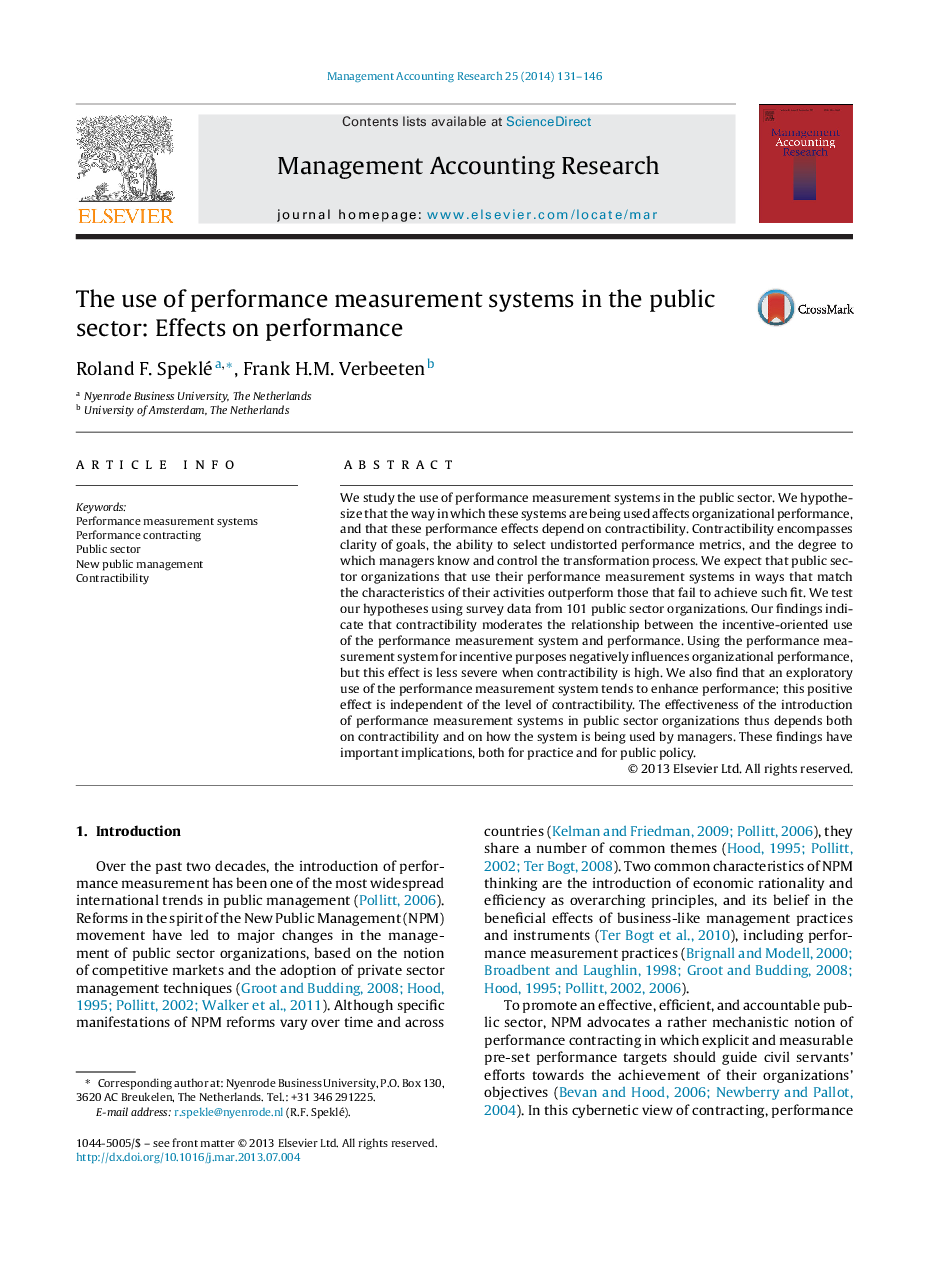| Article ID | Journal | Published Year | Pages | File Type |
|---|---|---|---|---|
| 1003445 | Management Accounting Research | 2014 | 16 Pages |
We study the use of performance measurement systems in the public sector. We hypothesize that the way in which these systems are being used affects organizational performance, and that these performance effects depend on contractibility. Contractibility encompasses clarity of goals, the ability to select undistorted performance metrics, and the degree to which managers know and control the transformation process. We expect that public sector organizations that use their performance measurement systems in ways that match the characteristics of their activities outperform those that fail to achieve such fit. We test our hypotheses using survey data from 101 public sector organizations. Our findings indicate that contractibility moderates the relationship between the incentive-oriented use of the performance measurement system and performance. Using the performance measurement system for incentive purposes negatively influences organizational performance, but this effect is less severe when contractibility is high. We also find that an exploratory use of the performance measurement system tends to enhance performance; this positive effect is independent of the level of contractibility. The effectiveness of the introduction of performance measurement systems in public sector organizations thus depends both on contractibility and on how the system is being used by managers. These findings have important implications, both for practice and for public policy.
